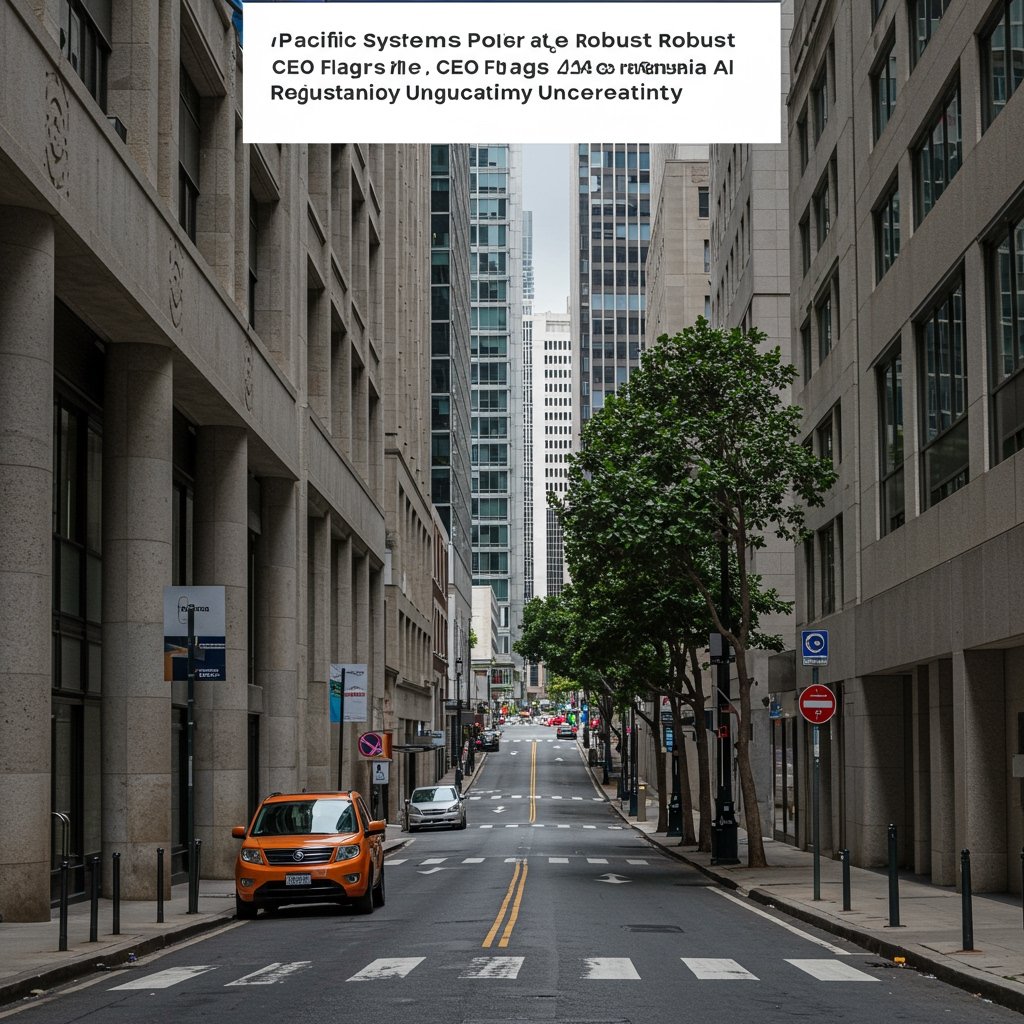Pacific Systems Exceeds Q1 Forecasts Amidst Growing AI Regulatory Focus
Seattle, WA – Pacific Systems Corp. (PSC), a leading technology company headquartered in Seattle, Washington, announced its first-quarter financial results for fiscal year 2025 on April 15th, reporting performance that significantly surpassed analyst expectations. The company posted revenue of $12.5 billion for the quarter ending March 31, 2025, marking a substantial 15% increase compared to the same period last year. This strong financial performance underscores PSC’s continued growth momentum across its various business segments.
The positive earnings report was met with an immediate favorable reaction from the market. Shares of PSC saw a notable surge during trading on April 16th, climbing approximately 7% as investors responded enthusiastically to the better-than-anticipated revenue figures and the robust year-over-year growth rate. The stock’s performance reflected investor confidence in PSC’s operational execution and market position heading into the second quarter of 2025.
Strong Financials Overshadowed by Emerging Regulatory Concerns
Despite the impressive financial achievements, the quarterly earnings call featured a cautionary note from PSC’s leadership regarding the evolving regulatory landscape, particularly concerning artificial intelligence. During the call with investors and analysts on April 15th, CEO Emily Chen highlighted a significant legislative development in California that could potentially impact the company’s operations.
Chen specifically drew attention to the proposed Assembly Bill 7 (AB7), which was formally introduced in Sacramento, California, on April 10th, 2025. This bill is designed to implement stricter oversight measures specifically targeting the training data used for generative AI models and the subsequent deployment of these AI systems within the state of California. While the full text and potential implications of AB7 are still being analyzed, its introduction signals a clear intent by California lawmakers to establish more stringent controls over advanced AI technologies.
AB7: Potential Impact on PSC’s AI Labs
The potential implications of California’s AB7 are particularly relevant to PSC given the location of one of its key divisions. PSC operates a significant AI research and development facility, known as PSC AI Labs, located in Palo Alto, California. This division is heavily involved in developing and deploying the company’s advanced generative AI models. Should AB7 be enacted into law in its current or similar form, PSC AI Labs could face new compliance requirements related to data sourcing, model transparency, safety testing, or usage restrictions for its generative AI technologies within California.
CEO Emily Chen explicitly mentioned the potential impact on the Palo Alto operations during the earnings call, acknowledging that the company is closely monitoring the bill’s progress through the legislative process. The exact nature and scope of compliance burdens under AB7 remain uncertain, as the bill is still in its early stages and subject to amendments and negotiations within the California State Legislature. This uncertainty adds a layer of potential risk that PSC is actively assessing.
Broader Context of AI Regulation
Assembly Bill 7 is not occurring in isolation. Its introduction is indicative of a growing trend towards increased legislative and regulatory scrutiny of artificial intelligence technologies, particularly on the West Coast of the United States, which is a major hub for AI development. Lawmakers are grappling with complex questions surrounding AI ethics, data privacy, potential biases in training data, job displacement, and the societal impact of widespread AI deployment.
The push for regulation in California, a state often seen as a bellwether for technological trends and policy, could potentially influence regulatory efforts in other states or even at the federal level. Companies like PSC, with significant AI operations and a broad market presence, are therefore facing a complex and rapidly evolving regulatory landscape that requires careful navigation and proactive engagement with policymakers.
While CEO Chen expressed confidence in PSC’s ability to adapt to evolving regulations, she underscored the importance of transparency and robust risk management in the face of legislative uncertainty like that posed by AB7. The bill’s potential passage, while not guaranteed, highlights the increasing challenges technology companies face in balancing innovation with calls for greater accountability and oversight in the AI space.
Outlook and Market Reaction
Despite the regulatory caution, the market’s initial reaction on April 16th remained focused on PSC’s strong financial performance, driving the 7% stock increase. Investors appear to be weighing the immediate positive financial news against the longer-term, less defined risks associated with regulatory changes. The company did not provide specific forward-looking guidance tied directly to AB7’s potential impact, emphasizing that it is still evaluating the situation.
Analysts covering PSC are now incorporating both the strong Q1 results and the potential regulatory headwinds into their models. The trajectory of AB7 through the California legislature in the coming months will be a critical factor for investors and for PSC’s strategic planning, particularly for its AI Labs division in Palo Alto. The juxtaposition of record earnings and emerging legislative challenges defines the current operating environment for Pacific Systems Corp.



















